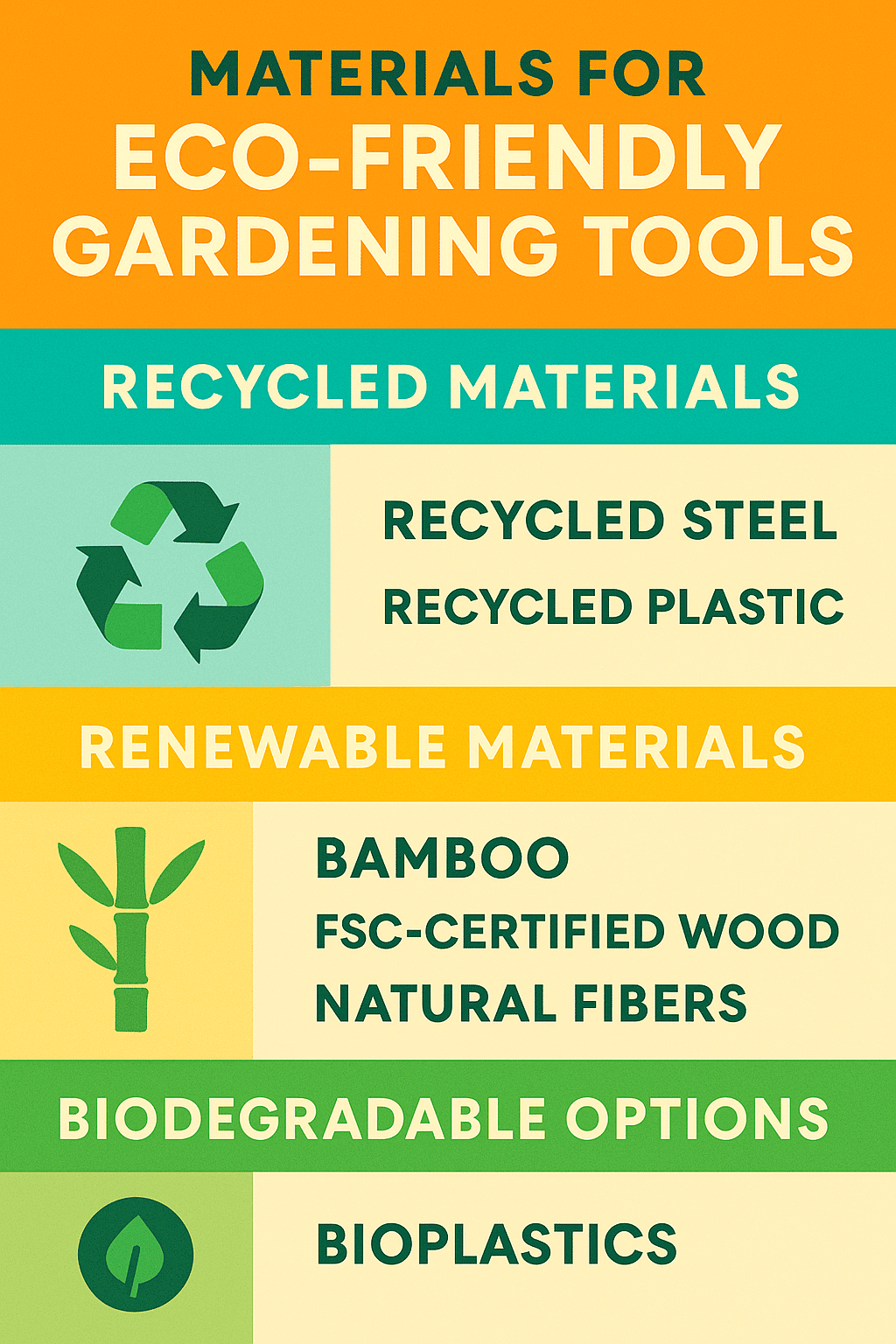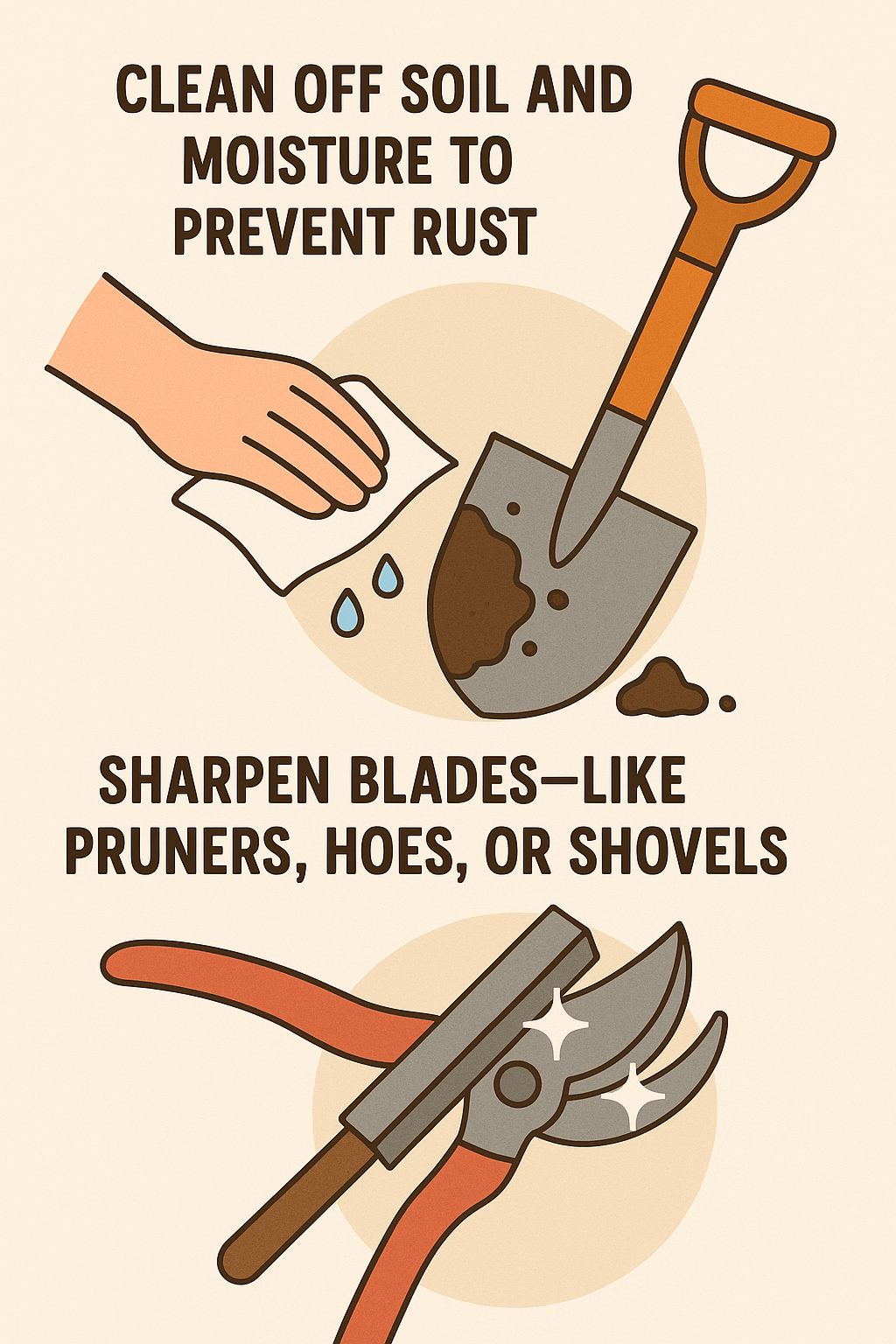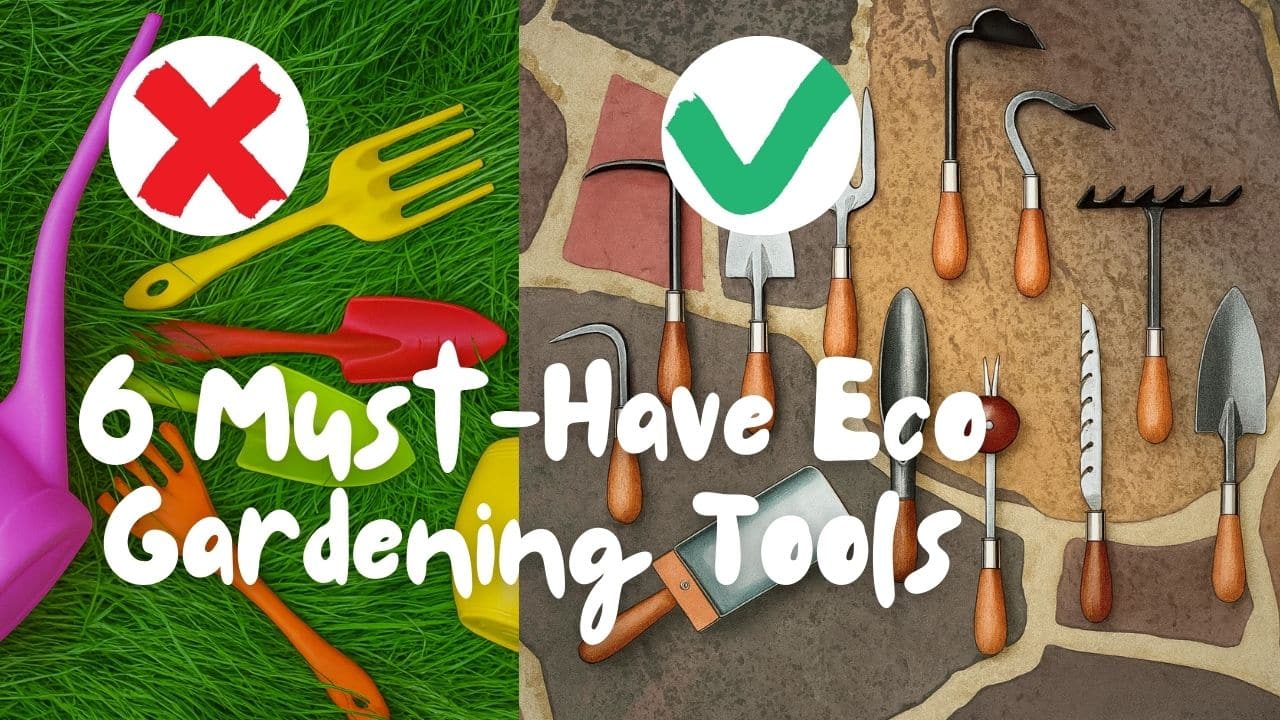Gardening is often seen as a green hobby—but many conventional tools aren’t as harmless as they look. Plastic handles that break after one season, mass-produced equipment made with fossil fuels, or chemical-heavy accessories can leave a lasting mark on the environment.
The good news? You can garden sustainably with eco-friendly gardening tools. These tools are designed to reduce waste, conserve resources, and work in harmony with the soil and plants you love. This guide explores why eco tools matter, what materials to look for, and which essentials to add to your shed this season.
Why Go Green with Your Gardening Tools?
Environmental benefits
- Less plastic waste: Choosing wood, bamboo, or recycled metal helps cut down landfill pollution.
- Resource conservation: Renewable and recycled materials require less raw extraction.
- Lower carbon footprint: Eco-friendly tools are often produced with cleaner methods and last longer, reducing replacement needs.
Personal benefits
- Durability: Quality eco tools resist wear and tear, saving money.
- Healthier gardens: Natural materials avoid chemicals that harm soil life.
- Deeper connection to nature: Using tools that align with sustainable values makes gardening more rewarding.
Key Materials to Look For
Recycled materials
- Recycled steel: Strong, reliable, perfect for trowels and pruners.
- Recycled plastic: Great for pots and handles when certified safe.
Renewable materials
- Bamboo: Fast-growing, lightweight, and biodegradable.
- FSC-certified wood: Sustainably harvested for tool handles or stakes.
- Natural fibers: Jute, hemp, and coir make sturdy ropes and liners.
Biodegradable options
- Bioplastics: Used in seed trays and pots that break down naturally.

Essential Eco-Friendly Gardening Tools
Hand tools
- Trowels & forks: Look for recycled steel blades with wood or bamboo handles.
- Gloves: Choose natural rubber or bamboo fiber instead of synthetics.
Long-handled tools
- Shovels & rakes: Pair steel heads with FSC-certified wooden handles.
- Hoes: A traditional design made with durable materials can last decades.
Watering gear
- Watering cans: Metal or recycled plastic options last longer.
- Hoses: Select recycled rubber or reinforced, lead-free hoses.
Specialty items
- Seed starters & pots: Use biodegradable trays, terracotta, or upcycled containers like egg cartons.
- Composters: Invest in a sturdy composter to recycle kitchen scraps.
- Storage: Wooden sheds or reclaimed shelves help keep tools dry and organized.
Maintaining Your Tools the Eco Way
Buying sustainable tools is just the start—caring for them extends their life.
- Clean: Brush off soil and dry tools after each use.
- Sharpen: Keep blades sharp for efficient cutting.
- Oil: Rub natural oils like linseed into wood to prevent cracks.
- Store: Keep tools in a dry shed to avoid rust.
- Repair, don’t replace: Swap handles or sharpen blades instead of discarding.

Switching to eco-friendly gardening tools is a simple way to make your balcony garden greener. From bamboo stakes to recycled steel trowels, every choice reduces waste and supports a healthier planet. Start small—replace one tool at a time—and soon your garden will reflect not just beauty, but sustainability too.

